Kenyan Politics- A new direction?
The Kenyan political scene has continued to take interesting twists and turns. In the last general elections, in 2002, in large numbers, Kenyans went to the polls and voted in a coalition government– the National Alliance of Rainbow Coalition (NARC).
The Orange Democratic Movement (ODM), a political party, born out of yet another alliance has several candidates vying to be nominated as the new party’s presidential candidate for elections scheduled for later in 2007. These include: William Ruto (who was in Minnesota last August) Raila Odinga, Kalonzo Musyoka, Uhuru Kenyatta, Mr. Najib Balala, Dr. Julia Ojiambo and Ms Nazlin Omar. ODM is faced with a difficult task ahead. Not only do they have to convince the public that they are more than a shell party created hastily to oust the ruling party, but that they have a lot more to offer the common mwananchi (woman/man).
In an interview with this reporter prior to a town hall meeting with Kenyans in Minnesota last evening, Mr. Odinga said in response to this need, ODM’s leadership has created three committees. The first committee’s task is to set up nomination roles and election procedures. This committee will decide whether the final presidential candidate will be elected by an electoral voting system, popular vote or a mixture of both. The committee will also vote on the nomination and time line of the party presidential election. The second committee will work on developing the party’s manifesto. ODM prides itself in being the people’s voice, and its third committee is set up with dealing with the party’s organizational structure from the national to the grassroots level.
Addresses Kenyans in Minnesota
Over the weekend, presidential aspirant, Raila Odinga visited the Kenyan community in Minnesota to ask for its support and discuss his platform. The team he led covered a broad range of topics in a town hall that lasted over four hours and was spent largely drawing clear distinctions between what ODM has to offer compared to what the current administration has been doing. Mr. Odinga, who has faced criticism from the media and political leaders in Kenya for calling out the current administration on its inefficiencies, addressed about eight hundred Kenyans in Brooklyn Park, Minnesota.
Mr. Odinga met a far different reception than one that greeted him in 2001 when he was last visited the state. Back then, he was booed by placard waving Kenyans upset at his collaboration with then president Moi whose unpopularity in the Diaspora was well documented. Last evening, he received a standing ovation at the conclusion of his remarks.
Mr. Raila Odinga has been one of Kenya’s most controversial political leaders. Odinga was arrested and detained after a 1982 coup attempt by members of the Kenya Air Force and charged with treason. After about six years, he was released when he began working with other Kenyan politicians in creating a multi-party system for Kenya. Once again, he was arrested and detained. He fled the country, only to return in 1992 to join his father; the late Jaramogi Oginga Odinga in embracing the new-found political freedom of Kenyans– multi-partyism was born. He continued to be an active member of Kenyan politics.
He was disappointed after the last General Elections, when after working with other leadership of NARC; a memorandum of understanding that would made him Prime Minister was dishonored by the current Kenyan President Mwai Kibaki. In 2005, Mr. Odinga rejected a change of constitution referendum that was backed by the government. Together with other politicians, Mr. Odinga ran a grassroots campaign that led to the government losing the referendum on a 57% to 43% margin. The fallout that resulted in President Kibaki’s sacking ministers in his cabinet that did not support the referendum leading to the creation of ODM.
Kenyans in the Diaspora
Like other politicians, Mr. Odinga has realized the political and economical power of Kenyans in the Diaspora. Impressed that they keep abreast with issues going on at home, Mr. Odinga declared that his party, ODM, was committed to making sure that the Diaspora participated in the upcoming elections. ODM is working with members of parliament (MPs) in what Mr. Odinga calls minimum reforms that he says have to be met before the elections. The constitution should be changed to allow for postal balloting acknowledging that Kenyan remittances of about one billion dollars to the Kenyan economy (2004) make them an important constituency. Joash Maangi, chairman of the delegation’s host committee in Minnesota went as far as to call for parties to have reserved seats for Diaspora Kenyans.
Economic/Social Reform
Mr. Odinga is committed to create a conducive investment environment for Kenyan investors. He cites bureaucracy as the main deterrent to investors. On brain drain to the Diaspora, Mr. Odinga was loathe to admit that Kenyan professionals working in different parts of the world, Europe, America and other parts of Africa, were more appreciated than they were at home. Mr. Odinga was critical of the current government’s economic initiative saying it was misplaced ambition. President Kibaki, a few weeks ago, presented to Kenya an economic plan based on the premise that the so-called Asian Tigers of Singapore, Thailand and Malaysia were at the same stage of development as Kenya was 30 years ago, yet catapulted themselves to industrialized and modern economies within a generation.
However, Mr. Odinga also cited the Asian Tigers and South Korea as countries to emulate.
His dream for Kenya’s future is ambitious where he boasts that he can lead Kenya to a 15% economic growth within his first year in office. “The current growth of Kenya’s economy, at 5.8%, is only in the service industry, in areas such as banks, insurance, tourism and transport with little or no growth in critical areas such as the manufacturing, agricultural and information technology sectors.”
Speaking on the current strike in Kenya by university lecturers, which has crippled the university system, Mr. Odinga said, “It is financially embarrassing that lectures cannot even afford to take their children to school. It is unfortunate that we are treating our professionals with contempt. The government’s solution with slight increases in pay just postpones the problem. It is possible for the government to pay these salaries, but the government has chosen to have other priorities such as an exorbitant defense budget.”
While responding to a participant’s question on his opinion on MPs hefty salary increase in salary when the current parliament was seated, Mr. Odinga said while he is not in favor of legislators being highly paid, he told the audience in defense of legislators that Kenya’s Harambee Culture is what is necessitating the high compensation. (Harambee, a term-coined by the founding president of Kenya, Jomo Kenyatta refers to fundraising events to help communities). Mr. Odinga claims, “MPs are harassed people. There are hundreds of people milling their offices and homes everyday with financial problems. They need the money to hand out to people in need. If an MP gives ksh5000, people will say ati Mheshimwa hataki kuchanga pesa (his honor does not want to contribute money). So MPs are forced to give over ksh10, 000.”
Mr. Odinga is committed to providing basic needs for all Kenyans. These include, but not limited to shelter, education, and security. Insecurity, especially in the urban areas has created a big gap between the poor and the rich. Mr. Odinga sees his role as a leader in alleviating poverty lessening the threat of security in the country. He also cited Kenya’s porous borders, especially the Northern Kenya which borders Somalia.
Political Reform
Mr. Odinga argued that with the current constitution there was too much power in the hands of one person. He cited examples where presidents have made political and civil service appointments based on kinship and tribe. This he contends has created cliques within the government and has got in the way for development. He offers a constitution that will allow for shared governance between the President and a Prime Minister.
Mr. Odinga, MP for Lang’ata constituency, home to Kibera, one of the largest slums in the world, when asked what he has done for his constituents, responded by saying that MPs did not really have any power. Members of Parliament, he argued were only legislators and could not implement policies, thus his candidacy for presidency that would allow him to participate in the executive branch of government. He was part of the Kibaki cabinet until November 2005.
Women and Leadership in ODM
Mr. Raila spoke passionately, from a podium that comprised exclusively of men, about his party’s commitment to women in leadership. He acknowledged that women, especially in rural Kenya, are isolated from their kinship when they move away from home to get married. Part of ODM’s minimal reform is to require a representation of women within the party structure.
Using soccer analogies, he dismissed president Kibaki’s announcement two weeks ago of an affirmative action plan for women. He said the president has been in office since 2002 and has done nothing and is using “injury time” to appear to be doing something.
His entourage included other members of parliament: George Munyasia (MP for Hamisi), and Sospeter Ojaamong (MP for Amagoro) and Omingo Magara (MP for South Mugirango). Also in attendance was Keith Ellison: Democrat candidate for Minnesota’s fifth congressional district.
The event was sponsored by members of the Kenyan business community in Minnesota.
Dinner
After the town hall meeting about 300 people joined Mr. Odinga and his entourage at a $40 a plate dinner ($70 for a couple) at a nearby hotel. Guests were served chicken, spinach with rice. Lettuce salad with salsa dressing was also served. Kenyan tea was available throughout the night.
Mr. Odinga later signed copies of the book Raila Odinga: An Enigma in Kenyan Politics by Dr. Babafemi Adesina Badejo that was on sale at the town hall meeting for $50. As this reporter waited on her publisher to withdraw money from a nearby cash machine to pay the $70 entrance for the two of them, one guest remarked “this is the new way of doing things (nice dinner) that we should continue on”.
After the dinner, Mr. Odinga was invited to open the dance and in the absence of his wife Ida, picked one of the ladies in the audience, to do the honors. The opening song was Tony Nyadundo’s Ohangla.
About Julia N. Opoti
A former Mshale editor, Julia Nekessa Opoti is now the producer and host of the radio show: Reflections of New Minnesotans on AM950 . She also edits/publishes Kenya Imagine.


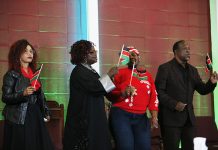
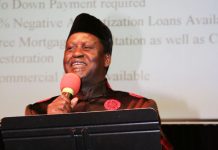
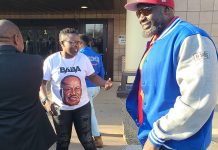
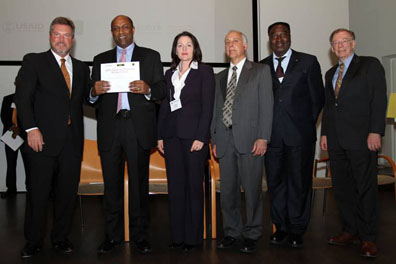

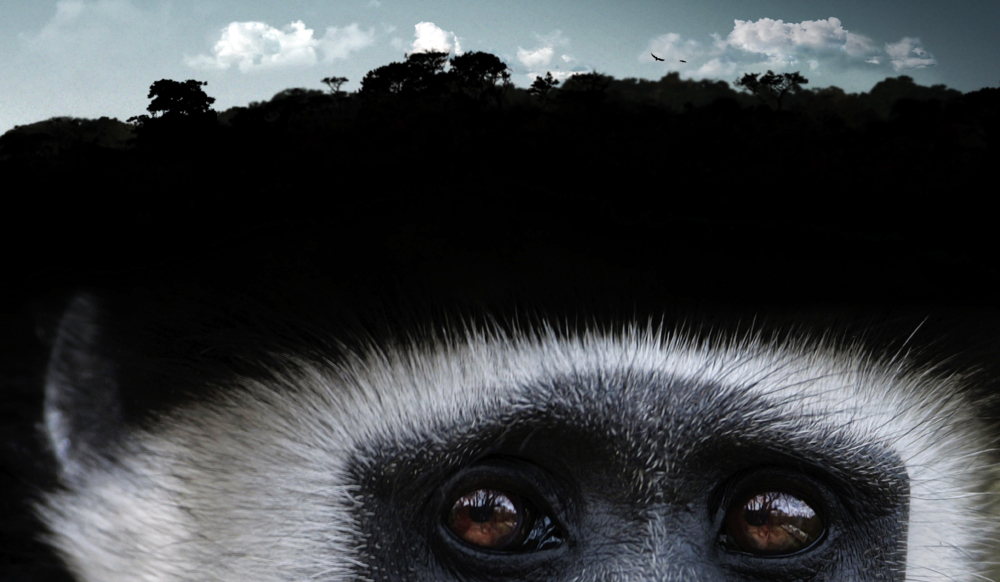
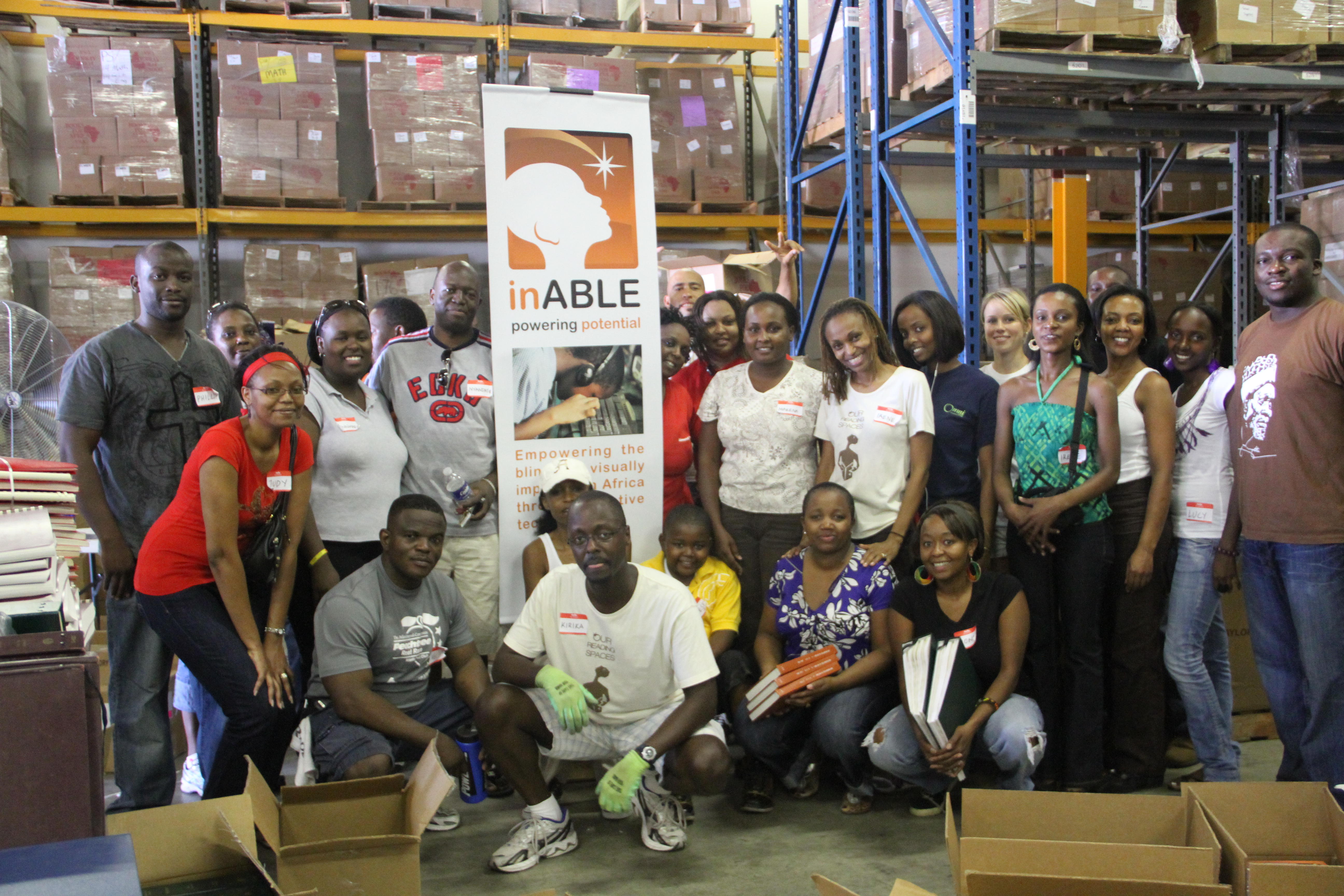


I am NOT a Raila supporter, but whatever anybody’s feelings about Raila are, at least he is decisive and gets things done. I’m afraid we can’t honestly say the same about the current fence-seating occupant of State House.
Thank you for your detailed report on this Raila function. I liked it so much that I blogged about it (gave it a controversial headline too) and linked back.
You can see the post at;
http://kumekucha.blogspot.com/2006/11/raila-dances-with-strange-woman-at-us.html
Thank you for a laborious article on Raila but I must hasten to point out that it is not sincere to see a problem as part of the solution. Raila and Kibaki are close buddies and they are only fooling the gullible.They are Kenya’s greatest headache. They are both the architects of Narc and are in constant touch. They are both members of the disgraced ninth parliament.
It is a shame some Kenyans would honor any member of the ninth parliament when they are the biggest wasters of resources on earth. They are lazy and greedy. They do not deserve the $10,000 monthly pay as MPs for going to work for the minimum days in a year. They have been politiking since the first day of January 2003. What difference is there between ice and water. They are the same only in different states. Kenya does not need a Raila or Uhuru or Kalonzo,or Kibaki for that matter, it needs a new leadership. It needs a social revolution to overhaul the ninth parliament.
Comments are closed.